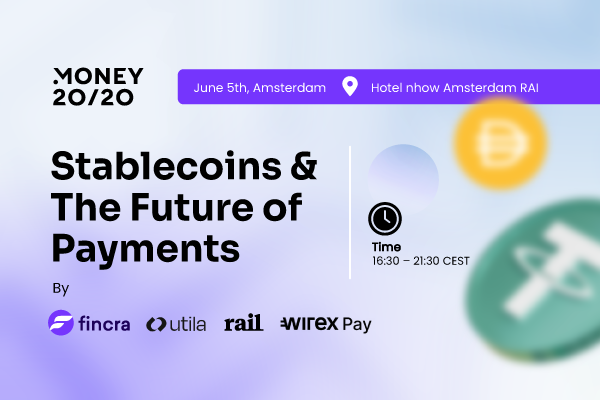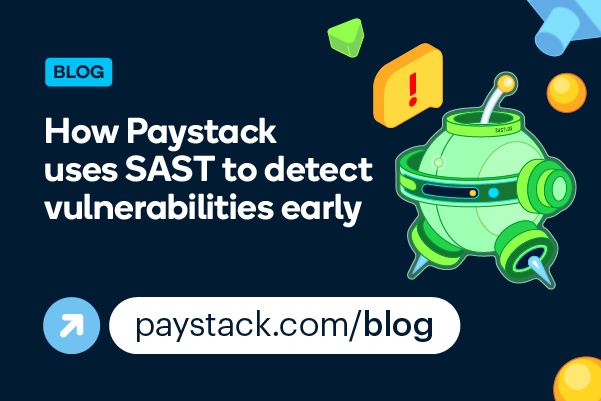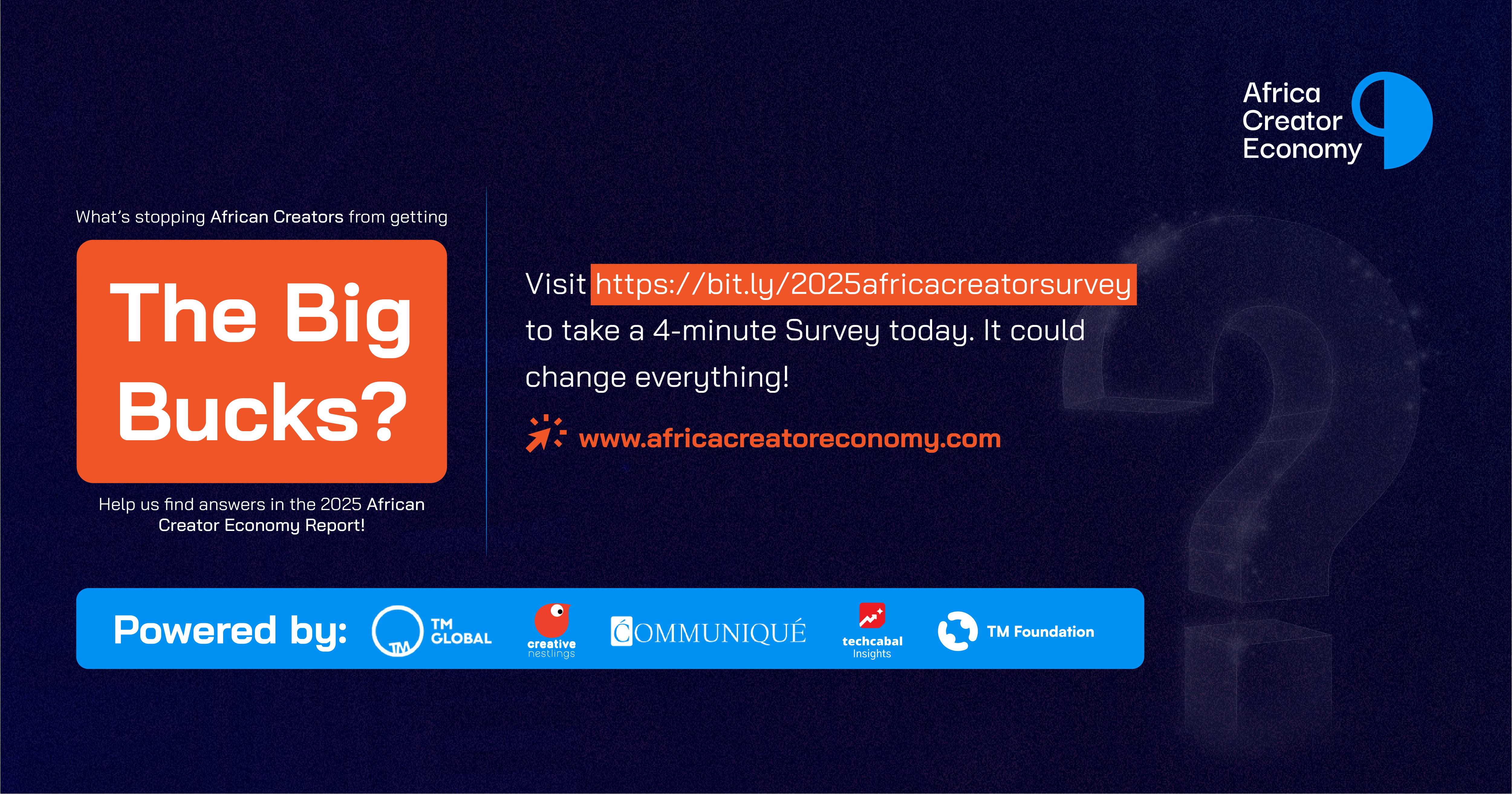
Good morning! 
What’s the best way to get rich quickly? Depending on how rich you want to get, my colleagues Muktar and Opeyemi have answers for you in today’s dispatch.
If you’re interested in moving your newfound wealth across borders, Ngozi highlighted—in her My Life in Tech series—an individual who has developed the infrastructure to make that possible.
Let’s get into it!

- Moniepoint’s unicorn round made employees billions of naira
- Tanzania blocks X (again) for pornographic content
- Netflix raises subscription prices
- How much do PoS agents in Nigeria make in a month?
- World Wide Web 3
- Events
Fintech
Moniepoint’s unicorn round made employees billions of naira

What’s the fastest way to get rich (without ending up in handcuffs)? Try joining a startup early.
Sure, you never really know which startup will succeed or fail. Just ask Ronald Wayne, the guy who sold his 10% stake in Apple for $800 back in 1976. Today, his stake would be worth a mind-boggling $350 billion. Ouch.
But here’s the real lesson: When Moniepoint closed its $110 million round, two employees cashed in big. One pocketed $850,000 (₦1.3 billion) by selling two-thirds of their shares. Another walked away with a tidy $20,000. These weren’t one-off flukes—Moniepoint has made employee share sales (aka “secondaries”) a core part of its playbook, letting senior folks cash out during major fundraises (the last one was in 2022).
Know more: Only employees with three years in the trenches could sell, and there were strict limits on how much they could offload. Shares vest over four years, with 25% unlocking each year.
Why does this matter? As IPOs and big buyouts remain rare in Africa, secondaries are becoming the go-to way for startups like Moniepoint and Arnergy (which did a similar deal in April) to reward and retain top talent.
Bottom line: Equity is no longer just a promise; it’s starting to pay out in real, life-changing ways. Sometimes, betting early really does pay off.
Join Fincra for an Exclusive Side Event at Money20/20 Europe

Fincra is co-hosting “Stablecoins & The Future of Payments” at Money20/20 Europe with Utila, Rail, Wirex & more. Join fintech leaders for insightful panels & networking. Limited spots – RSVP here.
Social Media
Tanzania blocks X (again) for pornographic content
Tanzania’s government has once again blocked access to X (formerly Twitter), blaming the platform for hosting porn and “violating national culture.” But if you think this is just about racy content, think again.
Here’s the backstory: The official Tanzanian police X account was hacked two weeks ago, posting explicit material and a fake announcement of the president’s death. The government quickly restricted access to X.
Rights groups aren’t buying the “protecting morals” narrative. The Legal and Human Rights Centre called out the move as part of a “troubling pattern of digital repression” ahead of October’s elections. It’s not the first time either. X was blocked before the 2020 elections.
Tanzania isn’t alone here. Across Africa, social media shutdowns are becoming the go-to playbook for governments facing unrest or bad press—see recent blackouts in Ethiopia, Sudan, and Senegal.
Zoom out: While the government says it’s all about upholding values, critics argue it’s a smokescreen for silencing dissent and tightening control as election season heats up. However, the government says Tanzania is a stable democracy, and the poll will be free and fair.

Tired of declined payments? Avoid the side-eyes at the cash till with Paga’s physical prepaid card. Designed to give you control, security, and ease. Fund and spend with confidence.
Get yours today!.
Streaming
Netflix raises subscription prices

Netflix has hiked its subscription prices in Nigeria—again.
Effective from July 4, 2025, the premium plan, will now cost ₦8,500 ($5.37) up from ₦7,000 ($4.43).
The standard plan will cost ₦6,500 ($4.11) up from ₦5,000 ($3.16).
Netflix basic plan will now cost ₦4000 ($2.53) up from ₦3,500 ($2.21). Its mobile plan, which was the most affordable will now ₦2,500 ($1.58) up from ₦2,200 ($1.39).
This increase marks Netflix’s third price hike in two years. In 2024 alone, Netflix increased its subscription fee twice in three months, first in April and then second one in July, where its premium package received a 40% increase.
Netflix says these price increases are part of its global strategy to fund platform improvements and expand its content offerings.
As expected, social media hasn’t been quiet. Some users have threatened to ditch the app entirely, saying they’ll turn to pirated sites instead. Others are planning to change to cheaper platforms like Showmax, whose the most expensive subscription plan is ₦5,400. The general sentiment? People are not happy about the hike and wonder if the content is still worth the cost.
Netflix isn’t alone. MultiChoice Nigeria has also made multiple price increments in the past year, citing inflation and operational costs. Even Showmax, its streaming counterpart, revised prices in May 2025.
So, what can this mean? It seems Netflix is confident in the Nigerian market’s willingness to pay. But for users, it may be another story, leading to downgrades, shared accounts, or cancellations.
What happens when Netflix’s ambition outruns its audience’s pockets?
How Paystack protects your business from cyber fraud

Discover how Paystack uses Static Application Security Testing to identify and prevent security threats before they become issues.
Learn more →
Economy
How much do PoS agents in Nigeria make in a month?

In many street corners across Nigeria, plastic chairs, battered umbrellas, and wooden stalls have become the unofficial signage of a PoS stand. Beyond cash withdrawals and transfers, PoS agents have quietly become the face of banking for millions of Nigerians. The proliferation of PoS stalls represents Nigeria’s shifting financial landscape, characterised by the growth of digital payments and unstable banking systems.
From the cash crunch of early 2023 to chronic ATM failures, PoS agents swooped in and reshaped how Nigerians access financial services such as deposits, bill payments, transfers, and withdrawals. In 2024, PoS agents transacted a total of ₦18 trillion.
But the real question is: how much do they actually earn?
But the real question is: how much do they actually earn?
We went behind the counter to find out what these agents really make, and how a generation of young Nigerians is building its economy, ₦100 at a time. From the small wins to the silent losses, this isn’t just a look at earnings. It’s a snapshot of what it means to work in Nigeria’s shadow banking system, where millions depend on a job that other people depend on.
Their earnings might surprise you. So will the risks. Read the full story here.
CRYPTO TRACKER
The World Wide Web3
Source:

|
Coin Name |
Current Value |
Day |
Month |
|---|---|---|---|
| $105,021 |
1.26% |
+ 11.62% |
|
| $2,616 |
2.53% |
+ 49.75% |
|
| $0.001647 |
– 1.52% |
– 68.26% |
|
| $154.50 |
1.28% |
+ 12.53% |
* Data as of 05.15 AM WAT, June 5, 2025.

Raising funds? Use the pitch deck template built for African crypto & fintech startups. Proven structure, investor-ready format. Get noticed, get funded.
Drop your email now to get it instantly
Events
- Digital Equity Africa presents the first AI Summit for Children in Africa, empowering young minds for an AI-driven world. Don’t miss out, register here!
- Are African creators really making money? TC Insights and partners are uncovering the real state of creator earnings, support, and opportunities for creators across the continent — and we want your voice in the story
Take our 4-minute survey and tell us what it’s really like. - The UNDP Nigeria Innovation Centre, in partnership with TechCabal and TechCabal Insights, is inviting voices from across the innovation ecosystem—startups, creatives, hubs, academia, and government—to share insights through the Ecosystem Engagement Survey. Your input will help shape collaborative solutions that address Nigeria’s development challenges, unlock new opportunities, and inform how innovation and digital transformation efforts are supported across the country. It’s a call to co-create the future together. Fill the survey here.



Written by: Opeyemi Kareem
Edited by: Faith Omoniyi
Want more of TechCabal?
Sign up for our insightful newsletters on the business and economy of tech in Africa.
- The Next Wave: futuristic analysis of the business of tech in Africa.
- TC Scoops: breaking news from TechCabal
P:S If you’re often missing TC Daily in your inbox, check your Promotions folder and move any edition of TC Daily from “Promotions” to your “Main” or “Primary” folder and TC Daily will always come to you.

Crédito: Link de origem




